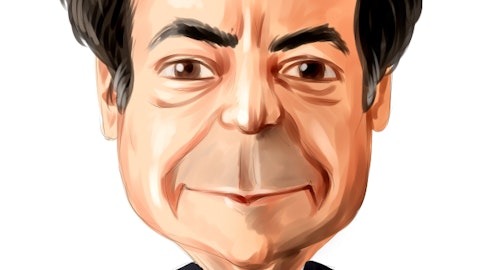Steven Cohen Isn’t A Hedge Fund Superstar (Reuters)
Some see signs that SAC Capital is becoming a maturing fund that will no longer be making a killing the way it did when Cohen was starting out. In 2010, SAC Capital returned 16 percent, after fees. That is better than the industry average of 10 percent, but a far cry from the blow-out numbers posted by other famous managers like William Ackman, Dan Loeb, John Paulson or Ray Dalio. The legendary trader no longer sits atop the hedge fund world when it comes to outsized performance. In some ways, Cohen is just becoming another well-paid manager posting good but not eye-jarring numbers. “In the hedge fund business there are always some superstars, like John Paulson, who can maintain the same standard of outperformance, but based on these recent numbers it does not look like Steve Cohen is that anymore,” said Nicolas Bollen, a professor of finance who studies hedge funds at Vanderbilt University’s Owen School of Management. For Cohen, the thought of no longer being seen as a hedge fund superstar may hurt more than anything prosecutors or regulators can say about him.

Crispin Odey Returned 8 Percent So Far in 2011 (Bloomberg)
Crispin Odey, whose Odey European Inc. hedge fund has gained about 8 percent this year, said the global economic recovery will drive stock prices higher this year, as long as central bankers don’t succumb to demands that they increase interest rates to fend off inflation. Odey, 52, told clients on a conference call last month that the European fund is “120 percent net long,” according to an investor, who declined to be identified because the comments weren’t public. Economic data indicates stock markets will go higher, and he’s positioned his portfolio to benefit, said Odey, whose firm manages about $6 billion, according to its website. … The Odey fund fell less than 0.1 percent in 2010, when funds that bet on rising and falling stock prices averaged an 11 percent gain. The European fund increased 34 percent in 2009 when Odey correctly bet that bank stocks hit by the financial crisis would rebound. His fund has gained 19 percent a year on average since the start of 2006.
Philip Falcone Turning Things Around (FIN Alternatives)
LightSquared, the venture into which Harbinger chief Philip Falcone has poured some 40% of his hedge fund’s assets, has already struck deals with five customers to offer wholesale 4G service and last month received a crucial waiver from federal regulators. Now, the company is in talks with a third carrier about a wholesale deal and is near a deal for a needed loan to build its network.
Louis Dreyfus Said To Close Commodity Fund to Investors (Bloomberg)
The $2 billion commodity hedge fund of Louis Dreyfus Group, the world’s largest rice and cotton trader, stopped accepting new money from investors, according to two people, after assets advanced 20-fold in about two years. The Louis Dreyfus Commodities Alpha Fund, managed by Geneva-based Ian McIntosh, started with $100 million in November 2008 and focuses mainly on farm products including grains, oilseeds, sugar, coffee and cocoa. The fund returned 17.3 percent in 2010. … Commodity hedge funds returned on average 10.65 percent in 2010, the Newedge Commodity Trading Index shows. Investors in the Standard & Poor’s GSCI Commodity Index received 9.02 percent. Assets managed by commodity-related funds were $195.8 billion as of Dec. 31, Eurekahedge’s Mumtaz said in Singapore.
Hedge Funds Prop Up Muni Market (WSJ)
Prices of muni bonds have already been volatile over the past few months, as supply and demand fell out of whack. Some investors also have been spooked by dire predictions of increased defaults from star banking analyst Meredith Whitney and headlines about the perilous fiscal condition of some state and local governments. States face a cumulative $125 billion budget gap for the coming fiscal year 2012, which starts July 1 in most states, according to the Center on Budget and Policy Priorities. Some high-net-worth investors and mutual funds have been heavy muni sellers. Investors have yanked roughly $25.8 billion out of muni mutual funds for 14 consecutive weeks, according to Lipper FMI. Enter hedge funds and other nontraditional muni investors, such as insurance companies and pension funds. Purchases by big hedge funds and those other buyers have recently helped stabilize muni-bond prices.



